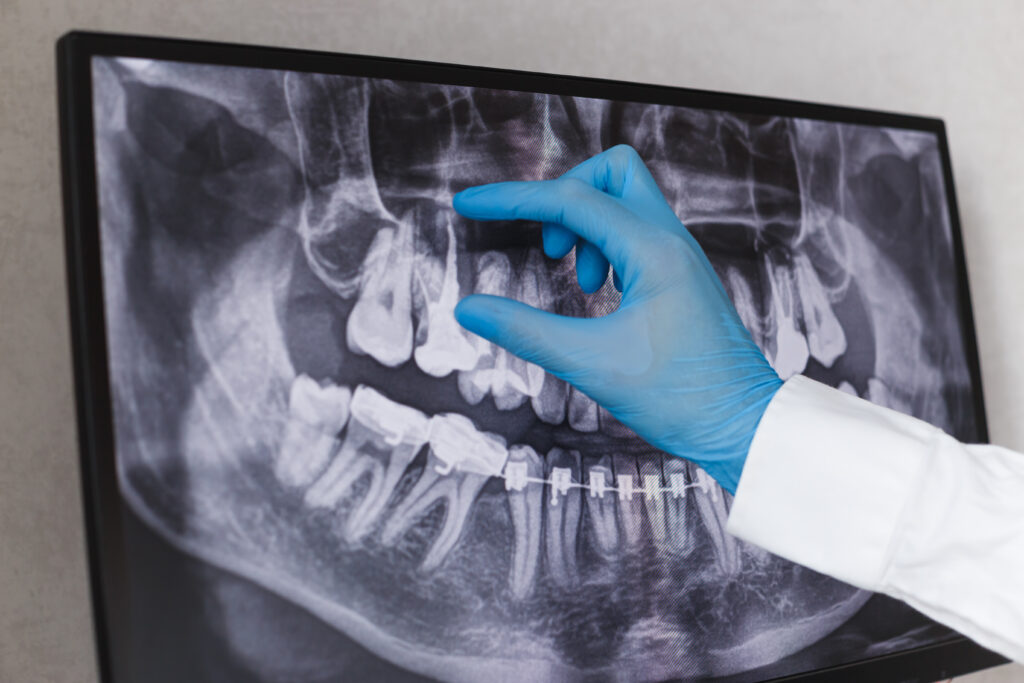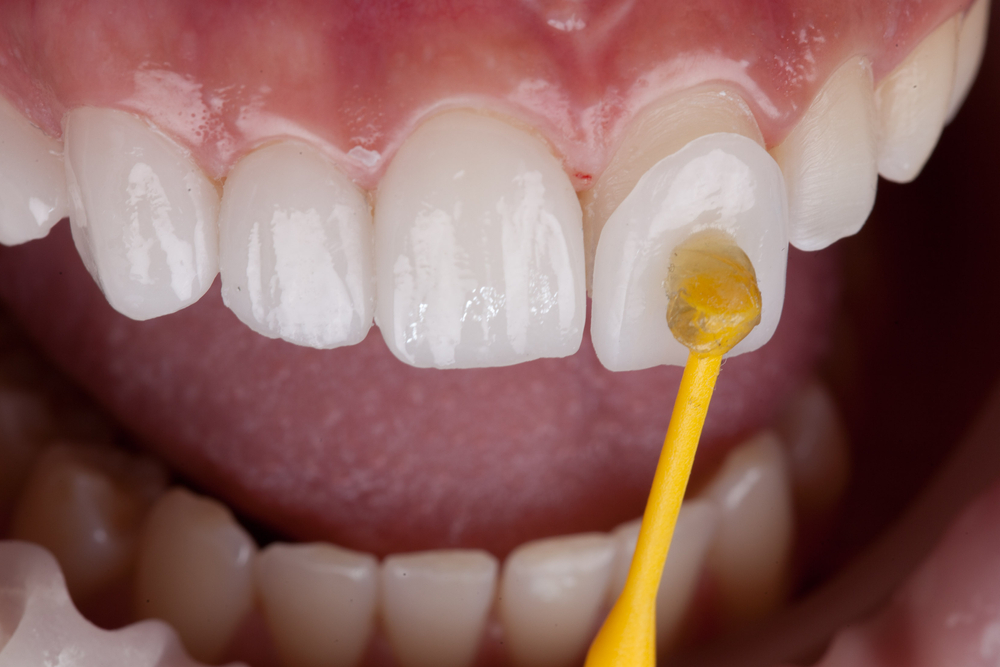Root canal treatment is an important procedure in dental care that focuses on treating the soft pulp tissue inside your tooth. This pulp is a soft area in the center of the tooth that contains nerves, blood vessels, and connective tissue. When this part of your tooth becomes infected or damaged, it can cause a lot of pain and other dental problems.
The main purpose of a root canal is to save your natural tooth. Without this treatment, the only other option might be to remove the tooth entirely. But saving your tooth is important because it helps you to maintain your natural smile, continue eating the foods you love, and limits the need for ongoing dental work. Root canal treatment is not just about getting rid of tooth pain; it’s also about preventing the spread of infection in your mouth. If left untreated, an infection in the pulp can lead to abscesses, which are much more serious and can cause severe pain and swelling.
Many people get nervous when they hear they might need a root canal because they think it will be painful. However, with modern techniques and anesthesia, most people report that the procedure is no more uncomfortable than getting a filling. It’s a routine treatment that can relieve your tooth pain and save your tooth from extraction.
Understanding Endodontic Therapy

Endodontic therapy, what we often call a root canal, is a special procedure to treat problems inside your tooth. “Endodontic” comes from two Greek words meaning “inside” (endo) and “tooth” (odont). This therapy is crucial when the pulp inside your tooth, which is the part that keeps your tooth alive and healthy, becomes infected or inflamed.
The process of a root canal involves a few steps. First, the dentist will numb your tooth so you won’t feel any discomfort. Then, they’ll make a small opening in the top of your tooth to reach the pulp. The infected or inflamed pulp is removed carefully. After that, the dentist cleans and disinfects the inside of your tooth. This cleaning is really important because it gets rid of bacteria and prevents further infection.
Once the tooth is clean, the dentist fills and seals it with a material that stops bacteria from getting back in. This step is like filling a cavity after a tooth decay. Finally, in most cases, a crown is placed on the tooth to protect it and restore it to its full function. This crown makes sure your tooth can handle the pressure of chewing just like your other teeth.
Endodontic therapy is a highly skilled procedure that can save a tooth that might otherwise be lost. It’s a common and safe treatment that plays a crucial role in maintaining your dental health and preserving your natural teeth for as long as possible.
The Process of Root Canal Treatment
The root canal treatment involves a few key steps to make sure your tooth gets the care it needs. Don’t worry, the first thing your dentist will do is use local anesthesia to numb the area. This means you shouldn’t feel any pain during the procedure. It’s just like when you get a cavity filled.
Once your tooth is numb, the dentist makes a small opening in the top of your tooth to reach the pulp. This pulp is the part of the tooth that’s causing all the trouble – it’s where the infection and damage are. The dentist removes this pulp very carefully. This step is important because it gets rid of the damaged or infected part that’s causing pain.
After removing the pulp, the next big step is cleaning the inside of your tooth. This isn’t just a quick rinse. Your dentist needs to make sure all the canals inside your tooth are free from bacteria and infection. This cleaning helps prevent any further problems.
Now that your tooth is clean, it’s time to fill it up. Your dentist uses a special biocompatible material to fill the canals. This material is safe and works well inside your tooth. After filling, the dentist seals the opening in your tooth to keep out any new bacteria.
The final step in a root canal often involves putting a crown or some other kind of restoration on your tooth. This helps protect your tooth and brings it back to its full strength and function. It’s like giving your tooth a new shield so you can eat and smile without worry.
Combatting Dental Infection: The Role of Root Canals
Root canals are really important for treating and stopping dental infections. When the pulp inside your tooth gets infected, it can lead to big problems, not just for your tooth but for your whole mouth.
During a root canal, the dentist removes this infected pulp. By doing this, they’re getting rid of the infection right at the source. This step is crucial because it stops the infection from getting worse or spreading to other parts of your mouth. If an infection in your tooth isn’t treated, it can lead to abscesses, which are more serious and can cause a lot of pain and swelling.
But it’s not just about getting rid of the infection. A root canal also helps to protect your tooth and keep it strong. After the infected pulp is removed, the inside of the tooth is cleaned and sealed. This sealing is like putting a barrier between your tooth and any new bacteria. It keeps your tooth safe from future infections.
By treating the infection and protecting your tooth, root canals play a key role in maintaining your overall dental health. They help keep your jawbone and surrounding teeth safe from the damage that an untreated infection can cause. Plus, by saving your natural tooth, you avoid needing more complicated dental work later on.
Preserving Your Natural Tooth
A key advantage of root canal treatment is that it allows you to keep your natural tooth. When a tooth is severely damaged or infected, the first thought might be to remove it. However, a root canal offers an alternative that keeps your tooth in place. This is important for several reasons.
Firstly, preserving your natural tooth helps maintain your natural bite. Each tooth plays a role in your mouth, helping you chew and speak properly. When you keep your natural tooth, you maintain the harmony and balance in your mouth. This can prevent other teeth from shifting, which can happen if a tooth is missing.
Also, keeping your natural tooth means avoiding more complex dental work. Alternatives like dental implants or bridges are often more invasive and expensive. These procedures can take more time and involve more visits to the dentist. A root canal, on the other hand, usually requires only a few visits and is less disruptive overall.
Moreover, your natural tooth, even after a root canal, can function just like your other teeth. With proper care and a protective restoration like a crown, a tooth that has undergone root canal therapy can last as long as your other teeth. It’s a reliable way to save a tooth that might otherwise be lost.
Post-Procedure Care: Ensuring Effective Root Canal Recovery

After your root canal treatment, taking good care of your tooth and mouth is crucial for a smooth recovery. Your dentist will give you specific instructions, but here are some general tips to follow:
- Avoid Chewing on the Treated Tooth: Until your tooth is fully restored with a permanent filling or crown, it’s wise to avoid chewing on it. This helps prevent recontamination of the interior of the tooth and protects it from any undue pressure or damage.
- Maintain Good Oral Hygiene: Keep up with your regular brushing and flossing routine, but be gentle around the treated area. Good oral hygiene helps prevent new infections and keeps your gums and remaining teeth healthy.
- Be Mindful of What You Eat: It’s best to avoid hard, crunchy, or very hot or cold foods right after your procedure. Stick to softer foods to minimize discomfort and protect your tooth.
- Manage Pain as Advised: It’s normal to experience some discomfort after a root canal. Your dentist might recommend over-the-counter pain relievers. Follow their advice on what to take and how often.
- Watch for Unusual Symptoms: While some discomfort is normal, severe pain, swelling, or a reaction to the medication requires a call to your dentist. These could be signs that you need further treatment.
- Regular Dental Checkups: Keep up with your regular dental checkups. These appointments allow your dentist to monitor the healing of your treated tooth and the health of your other teeth.
By following these steps, you can help ensure that your tooth heals properly and your overall oral health remains strong. Remember, a successful root canal and good aftercare can allow your natural tooth to last a lifetime.
When to Consult an Endodontist
Knowing when to see an endodontist, a dentist who specializes in treating the inside of teeth, can make a big difference in the success of your root canal treatment. Endodontists have extra training in root canal therapy and are experts in dealing with more complex cases.
You might need to see an endodontist if your case is particularly tricky. This can be due to various reasons, such as the shape of your tooth’s roots being unusual or the canals being very narrow or curved. These conditions can make a standard root canal procedure more challenging. An endodontist has the specialized tools and expertise to handle these difficulties.
Another reason to consult an endodontist is if you’ve had a root canal before and it hasn’t healed properly or you’re still experiencing problems. Endodontists are skilled in re-treatment of root canals and can often save a tooth even if the first treatment didn’t fully resolve the issue.
Endodontists also deal with cases where a tooth has a crack or a dental injury. In such situations, the inside of the tooth might be damaged, even if it’s not visible from the outside. An endodontist can assess the extent of the damage and determine the best course of treatment.
The Impact of Root Canals on Overall Dental Health
Root canal treatment plays a vital role in maintaining your overall dental health. By saving your natural teeth, it has several long-term benefits.
One of the biggest advantages is maintaining your proper chewing function. Each tooth in your mouth has a specific role in helping you chew. When you save a natural tooth with a root canal, you preserve this function. This is important for your nutrition and overall health, as it ensures you can continue to eat a wide variety of foods.
Another benefit is preventing your other teeth from shifting out of line. When a tooth is removed and not replaced, the surrounding teeth can shift position over time. This can lead to problems with your bite, other teeth becoming crooked, and even difficulties with cleaning your teeth properly. A root canal keeps your teeth in their proper place.
Lastly, root canals contribute to a healthier oral environment. By removing the infection from a tooth, you’re preventing it from spreading to other parts of your mouth. This helps keep your gums and other teeth healthy. It also avoids more serious health issues that can arise from untreated tooth infections.
In conclusion, root canals not only save teeth but also play a crucial part in maintaining the health of your entire mouth. They’re a key treatment in preserving your natural smile and ensuring your oral health is at its best.
FAQs: Answering Common Questions About Root Canals
1. Is a root canal procedure painful?
Many people think root canals are very painful, but with modern anesthesia and techniques, most patients report that the procedure is no more uncomfortable than getting a filling. Your dentist will make sure the area is numb, so you should feel minimal discomfort during the treatment.
2. How long does the root canal process take?
The length of a root canal procedure can vary depending on the complexity of the tooth and the extent of the infection, but most treatments are completed in one to two visits. Each visit can last between 30 minutes to a couple of hours.
3. What should I expect after a root canal?
After the procedure, you may experience some tenderness or mild discomfort in the area for a few days, which can usually be managed with over-the-counter pain relievers. It’s important to avoid chewing on the treated tooth until it’s fully restored with a permanent filling or crown.
4. Can I eat normally after a root canal?
You should wait until the numbness wears off to eat, to avoid accidentally biting your cheek or tongue. Initially, it’s a good idea to stick to soft foods and avoid chewing directly on the treated tooth.
5. How successful are root canals?
Root canal treatments have a high success rate, with many treated teeth lasting a lifetime. With proper care and regular dental check-ups, your restored tooth can function like any other tooth.
6. Will my tooth need any special care after a root canal?
After a root canal, your tooth shouldn’t need any more care than your other teeth. Continue with good oral hygiene practices, including brushing, flossing, and regular dental checkups.
7. When should I see an endodontist for my root canal?
If your dentist recommends it or if your case is complex, such as having very narrow or curved canals, you may be referred to an endodontist. These specialists are experts in root canal therapy.
Experience Exceptional Dental Care at Smile Science Dental Spa in Glendale, AZ
At Smile Science Dental Spa in Glendale, AZ, Dr. Richard Dawson and Dr. John Turke, both accomplished general dentists, are dedicated to providing comprehensive dental care. We cover a wide range of dental treatments, from routine check-ups to more complex procedures like root canals, ensuring our patients receive the best possible care for their dental health. If you’re experiencing dental discomfort or want to learn more about our services, we invite you to discover the quality and care we offer at Smile Science Dental Spa. Our team is here to help you achieve and maintain a healthy, beautiful smile.





